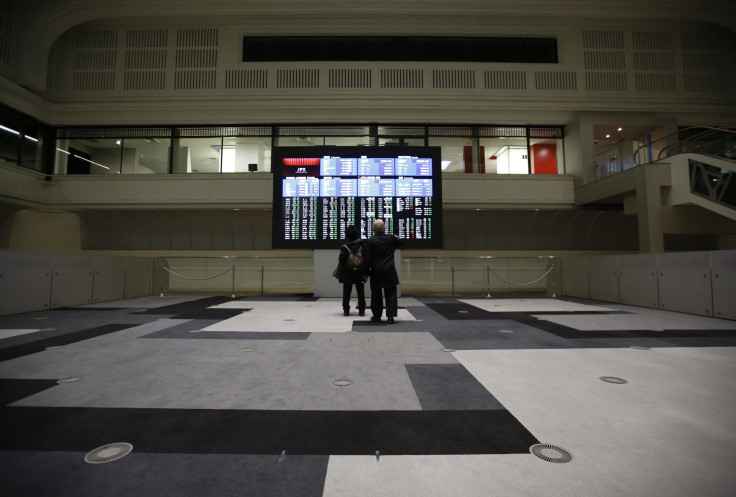Asian Shares Firm After US Jobs, Dollar Soft

Asian share prices held firm on Monday after solid U.S. payroll data underpinned investor risk sentiment while dovish comments from Federal Reserve Chair Janet Yellen the previous week kept the U.S. dollar in check.
Oil prices dropped in early Asian trade, extending their decline on Friday following comments from a powerful Saudi prince that raised doubts about the chance of any output freeze deal later this month.
MSCI's broadest index of Asia-Pacific shares outside Japan .MIAPJ0000PUS rose 0.1 percent while Japan's Nikkei .N225 also ticked up 0.1 percent after initial fell.
U.S. stocks on Wall Street rose on Friday, with the S&P 500 .SPX gaining 0.63 percent to a three-month high, after better-than-expected U.S. jobs and factory numbers.
Non-farm payrolls increased 215,000 and were above expectations while average hourly earnings rose 7 cents, recovering from a slip in February.
The unemployment rate rose to 5.0 percent from an eight-year low of 4.9 percent, though that was due to more people seeking work, a sign of confidence in the jobs market.
Manufacturing data from the U.S. and China also eased concerns about a slump in global manufacturing activity.
Yet the cautious rate-hike view expressed by Fed Chair Janet Yellen last week resonated among investors, limiting expectations of a near-term rate hike by the Fed.
"U.S. labor markets are firm, with the pool of labor expanding but pressure on wages is hardly rising. We have been seeing this for a long time and unless it changes, markets will focus more on Yellen's stance," said Koichi Yoshikawa, executive director of financial markets at Standard Chartered Bank.
Two-year Treasury yield US2YT=RR stood at 0.736 percent, not far from a one-month low of 0.725 percent touched on Thursday.
Minimal increases in U.S. yields undermined the U.S. dollar in the currency market.
The euro EUR= stood at $1.1390, not far from its 5 1/2-month high of $1.1438 touched on Friday.
It has not shown any reaction so far to the fresh tension among Greece and its lenders over a leaked transcript suggesting that IMF staff may threaten to leave the bailout to force European lenders to offer more debt relief.
Against the yen, the dollar traded at 111.73 yen JPY=, having dropped to a two-week low of 111.56 early on Monday.
The dollar was also weaker against a number of currencies in emerging markets.
The Brazilian real BRL= stood at a seven-month high while the South African rand ZAR= was at a four-month high. The presidents of both countries face impeachment moves for alleged misconduct.
Oil markets are losing momentum after their recovery from mid-February to March as doubts return over the ability of big oil-producing countries to agree to an output freeze when they meet on April 17.
Saudi Deputy Crown Prince Mohammed bin Salman said on Thursday the OPEC kingpin will not join the output freeze without the participation of Iran and other major producers, Bloomberg reported.
Iran has maintained that it will not participate in any freeze until its oil exports return to pre-sanctions levels.
Brent crude futures LCOc1 fell to as low as $38.25 per barrel, their lowest in a month, in early Asian trade on Monday, and last stood at $38.40 per barrel, down 0.7 percent.
U.S. crude futures CLc1 dropped 0.9 percent to $36.46, hovering near their lowest level in three weeks.
© Copyright Thomson Reuters 2024. All rights reserved.











